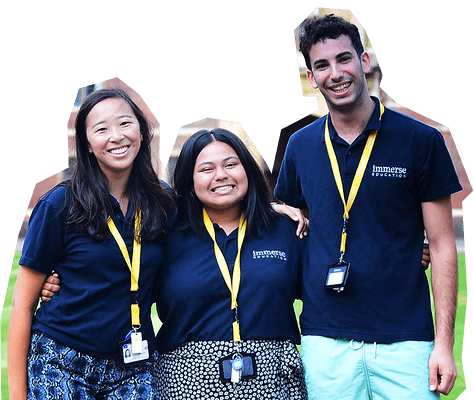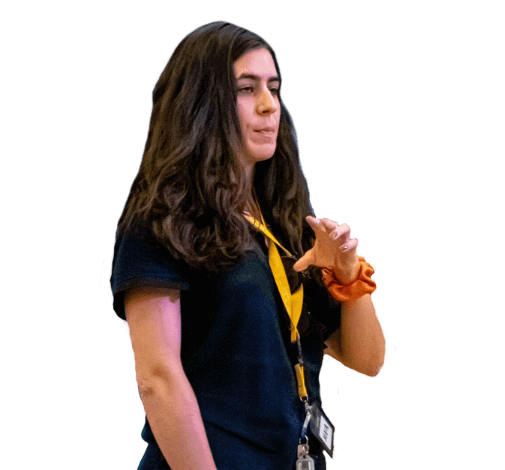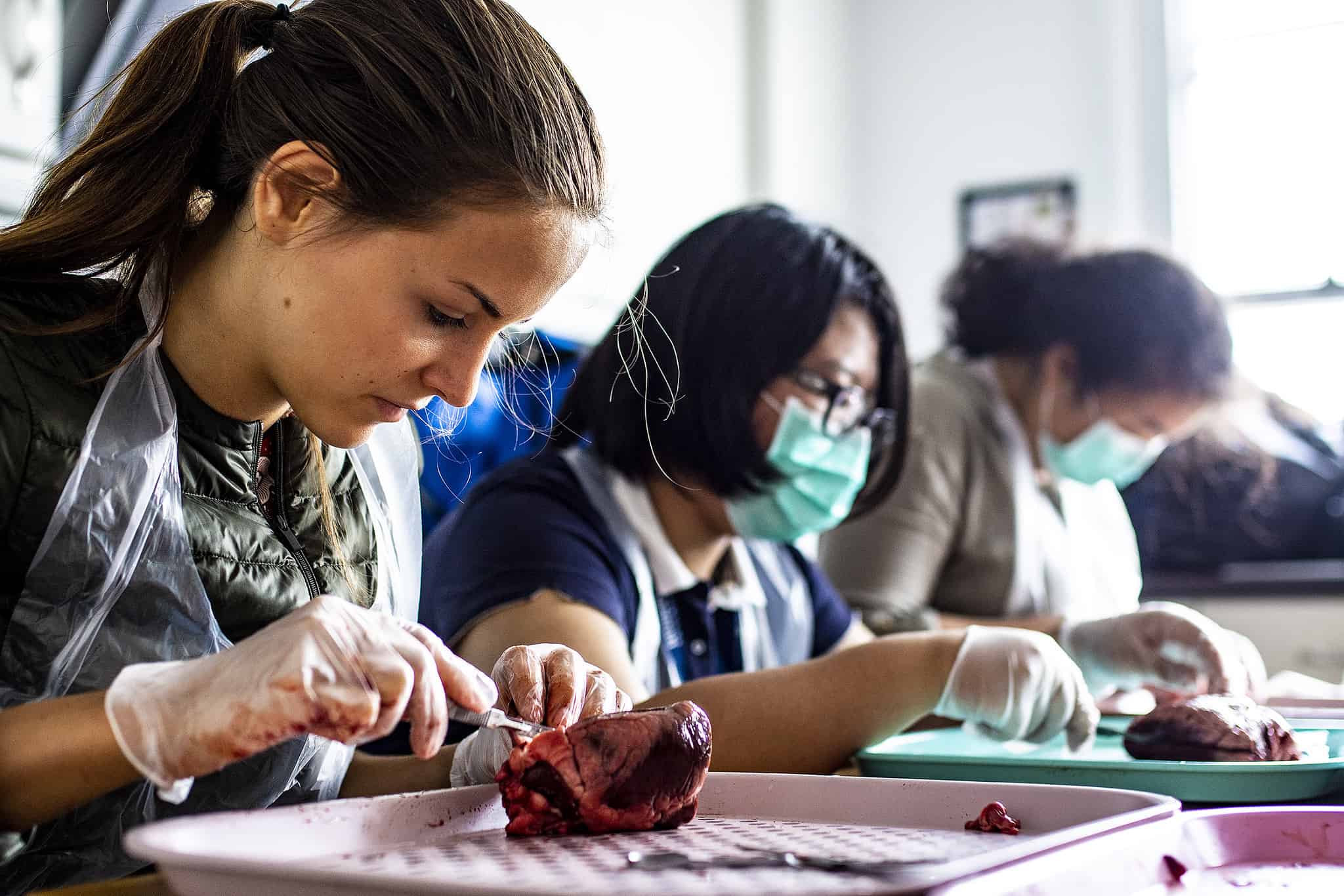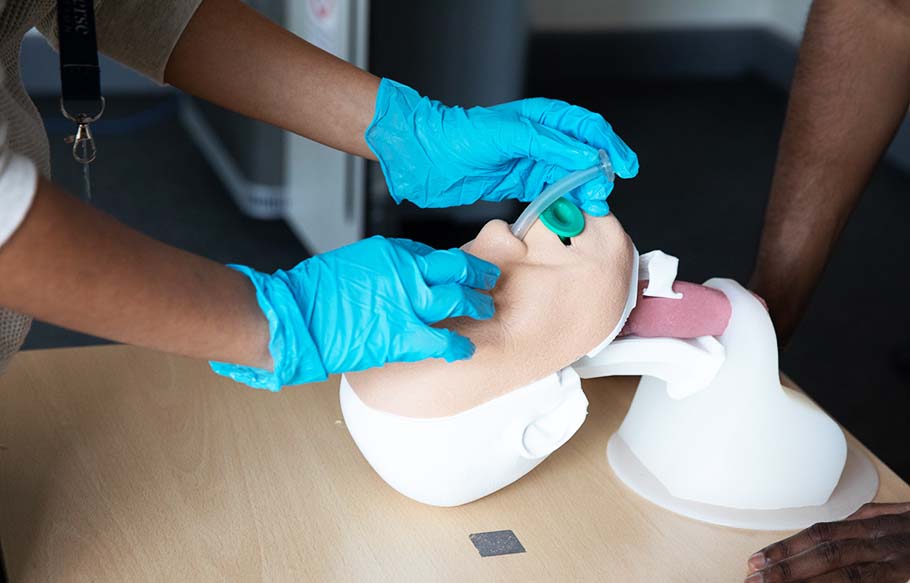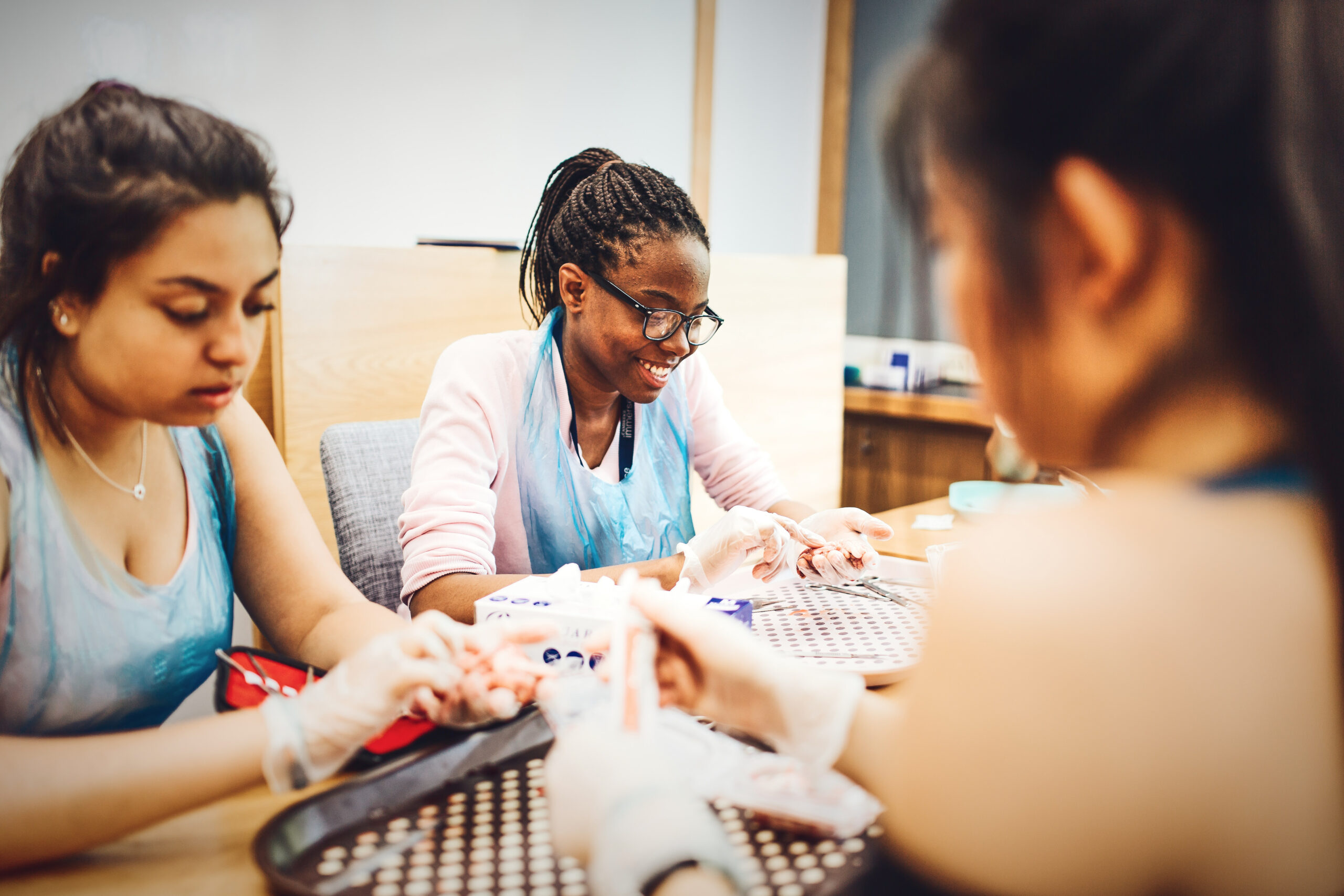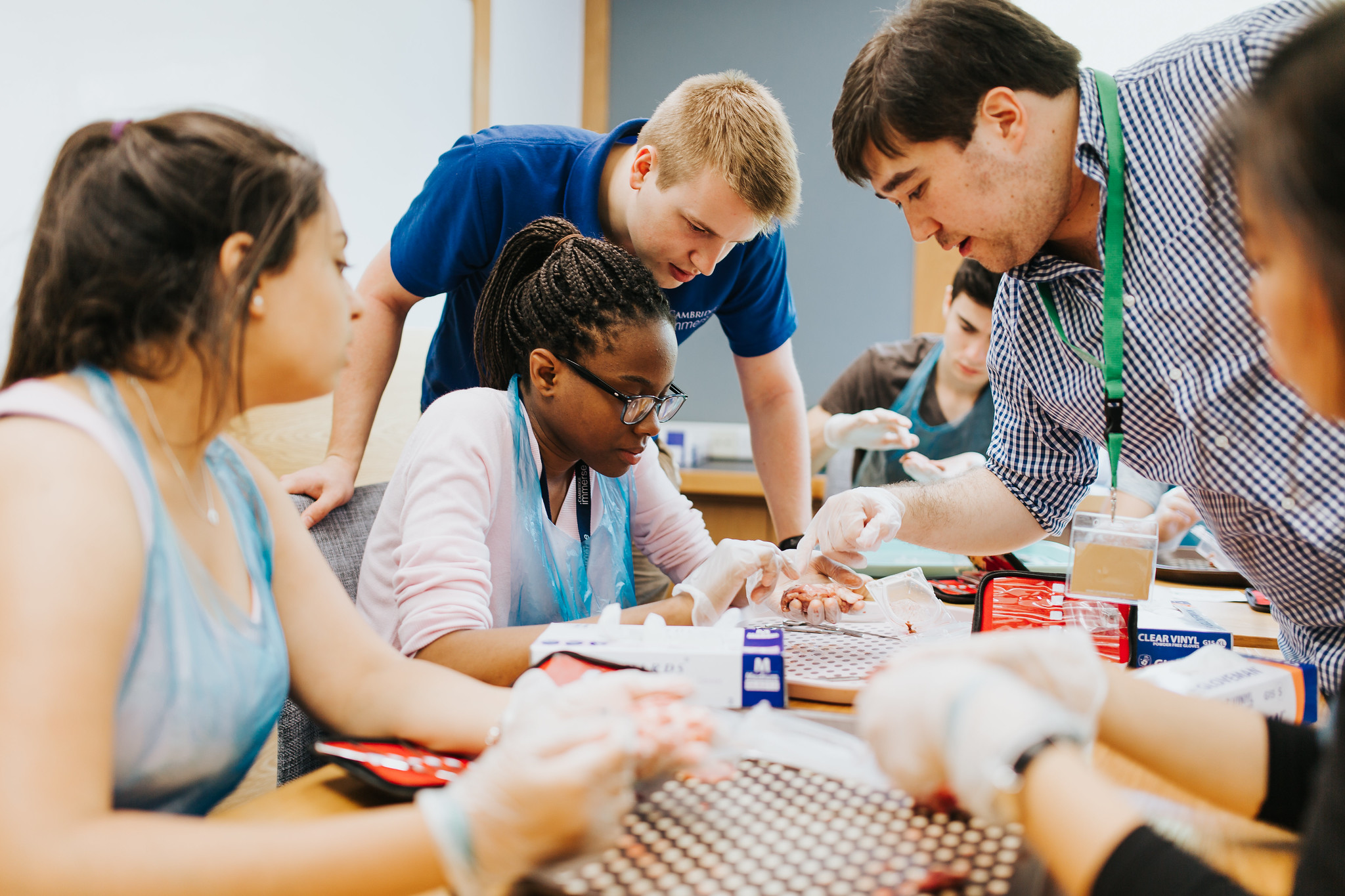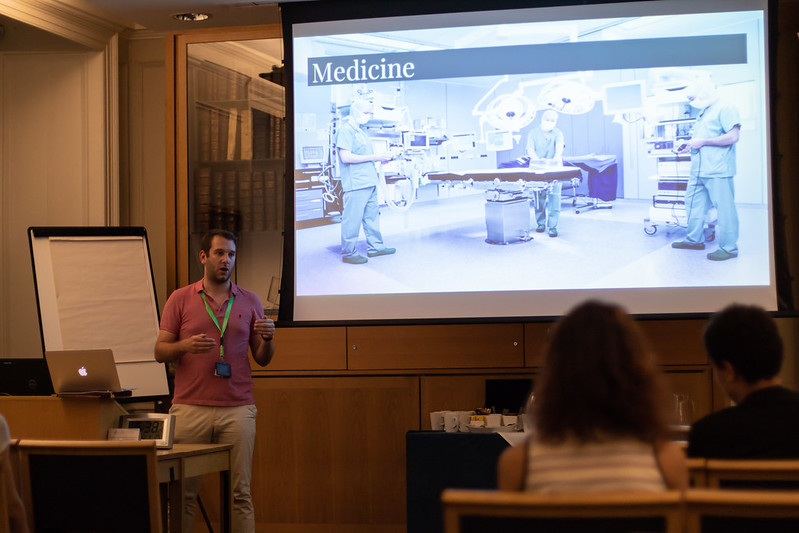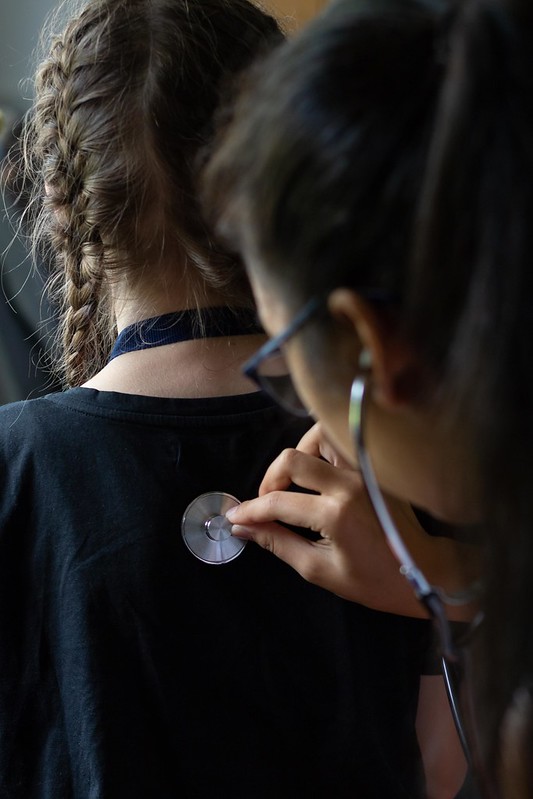Medicine Summer Schools
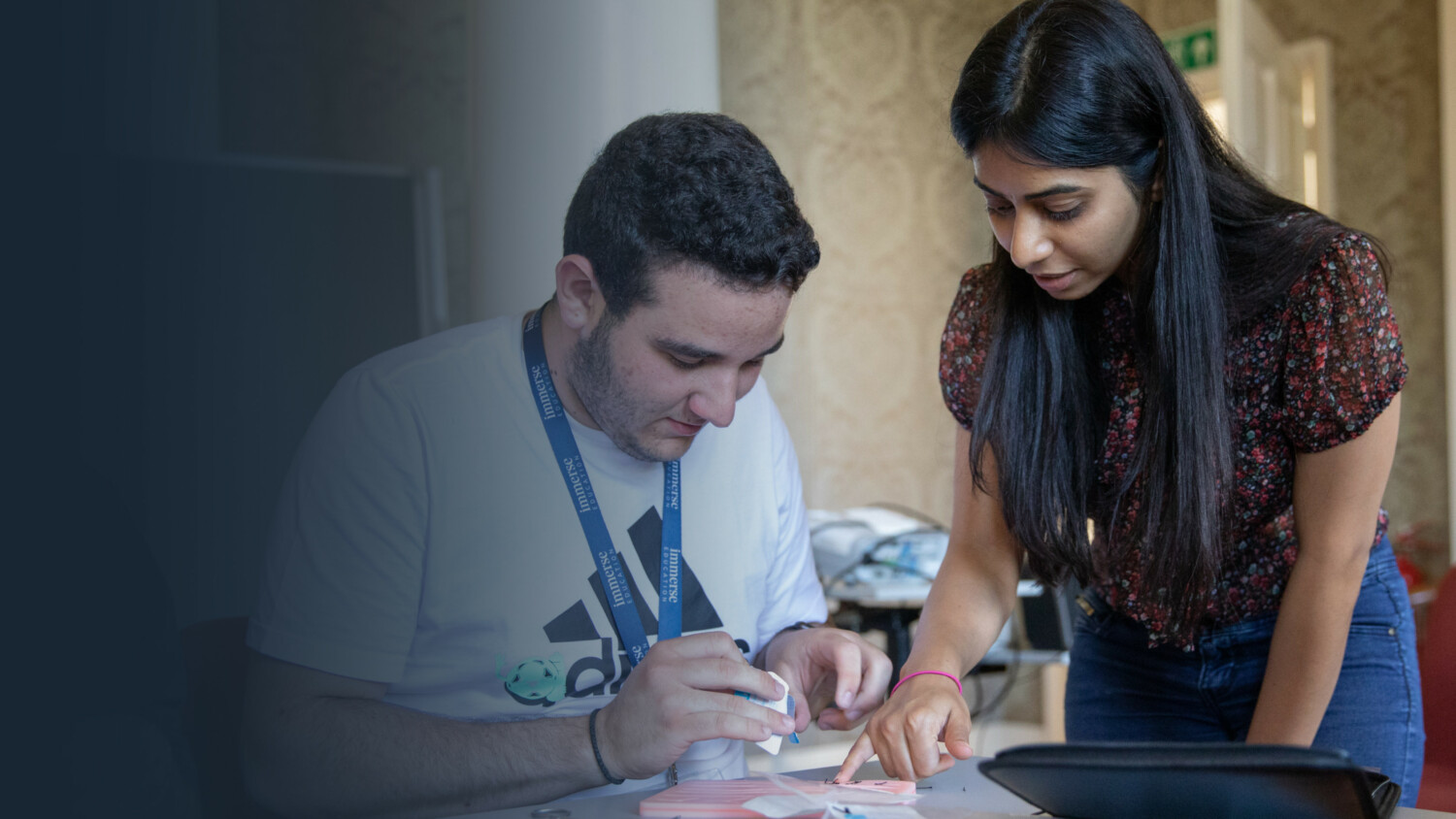
Unparalleled academic programmes
Medicine
Medicine
Medicine
Medicine
Medicine
Medicine
Medicine
Medicine
Medicine
I would describe the Immerse Academic Insights programme as intellectually stimulating, diverse, inspiring, motivating. I’ve definitely enjoyed meeting new people from all around the world, it has been amazing. I’ve loved studying something that I’m so passionate about, and being around like minded people and learning with them has been an incredible experience.
We’ve done dissections and other practicals such as suturing and gone through a lot of content that I wouldn’t have learned at school. I feel like the Immerse course is really preparing me for higher education by giving me insight into what being a university student might be like.
I looked at the essay competition and it seemed like an incredible opportunity, so I applied for the essay competition, got a partial scholarship, and here I am!
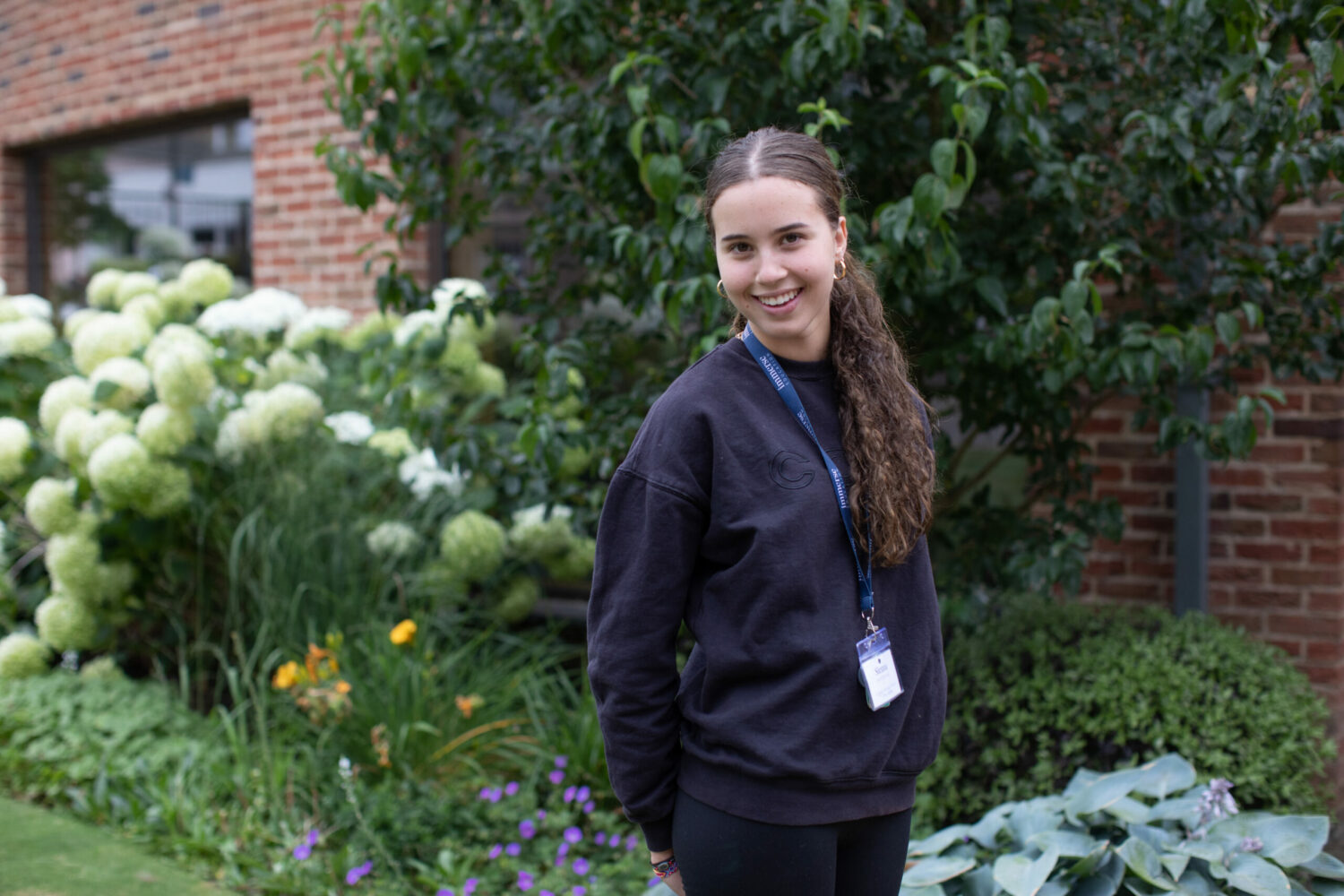
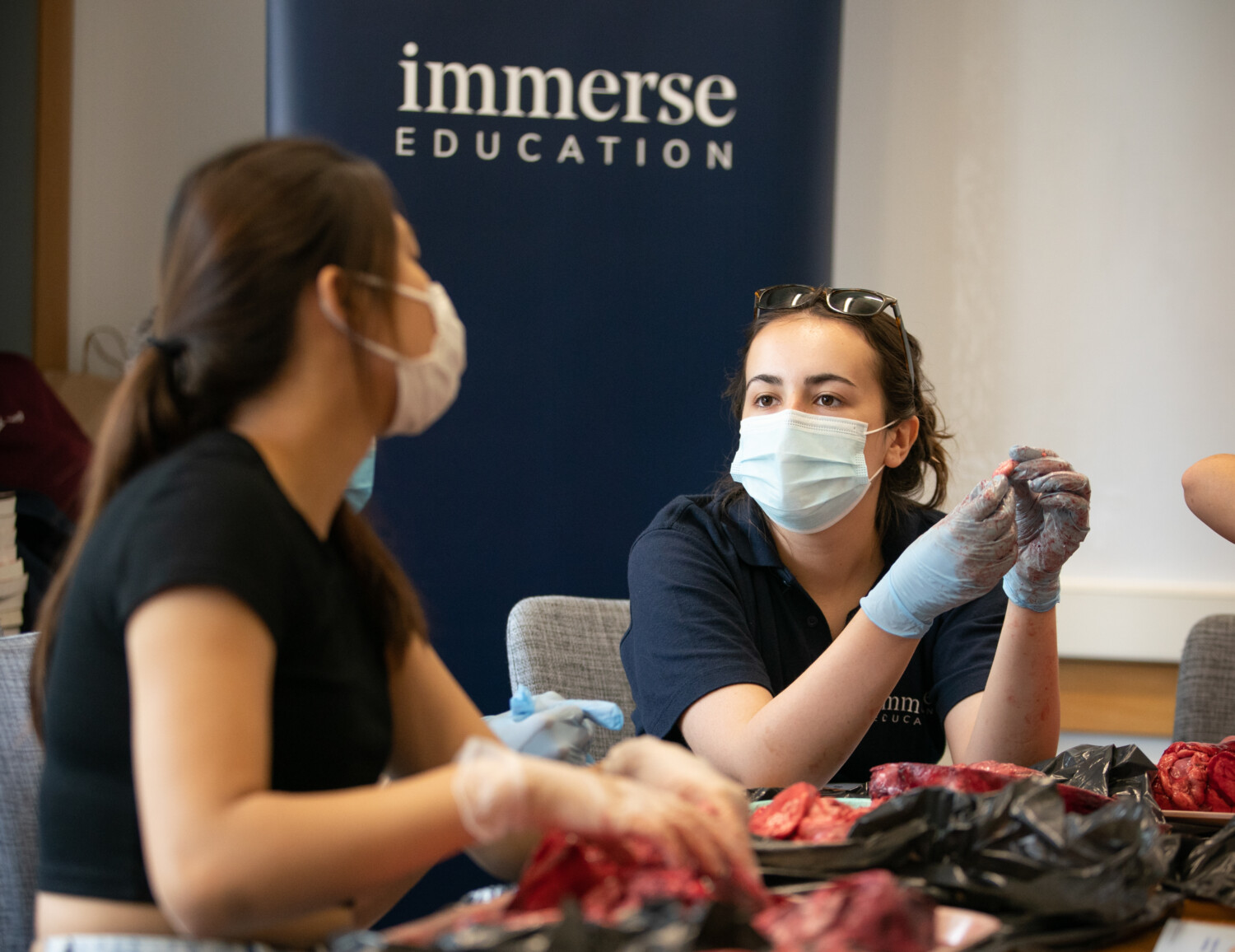
About the Immerse Medicine Summer School
Medicine encompasses far more than just being a doctor. The Immerse Education Medicine programme covers Medicine from the laboratory right through to the patient’s bedside and considers drugs, disease and the human anatomy along the way. With expert guidance from university tutors, you will explore the work at the forefront of medical research, debate medical ethics and learn the emergency medicine processes utilised by clinical medics in all fields. Along the way you’ll develop the critical thinking and independent research skills crucial to success in this field.
During your two week programme, you will live and study in a university college as you explore the breadth of opportunities that Medicine has to offer. Outside of your academic studies, you’ll get to know the city as you meet new friends from around the world and make the most of our busy programme of social and cultural activities.
Do you want to discover what it’s like to study Medicine? Discover your passion with our academic programmes!
Frequently Asked Questions
What is Medicine?
Medicine is a branch of healthcare that focuses on preventing and treating illness. It includes anatomy, physiology, biochemistry, pharmacology, and pathology disciplines. Physicians who specialise in medicine are known as doctors or physicians.
Why is it important to study medicine?
It’s important to study medicine if you wish to become a doctor. Doctors help people suffering from diseases to heal and recover their lives. Are you eager to give people relief from pain? Will you be willing to commit hours of rigorous hard work to attain this end? If so, then you’ll thrive in medicine!
Are you passionate about researching how to improve humanity’s victory over diseases? Then it’s also best for you to study medicine. Why? Because having the proper training, license, and connections will help you succeed in this endeavour. Doctors are constantly searching for new and more efficient ways to prevent and treat ailments via research.
Due to the immense contribution and dedication doctors give to the community, they enjoy a prestigious societal position. Add that to the fact that doctors are in-demand everywhere! As a result, most medicine graduates immediately get a job. And they’ll enjoy a long career of stability that pays well.
The US Bureau of Labor Statistics reports a 16% employment growth for healthcare occupations from 2020 to 2030. Resulting in 2.6 million new jobs. Its growth rate is much faster than any other occupational cluster!
In the UK, doctors are in high demand. Especially in England, with an approximate ratio of 3 practising doctors per 1,000 people.
There are plentiful career prospects for medicine students, such as cardiologists, psychiatrists, neurologists, ophthalmologists, anaesthetists, and surgeons.
Immerse Education offers both online and residential courses for Medicine. The residential courses are available at Oxford, Cambridge, London, and Sydney.
You don’t need prior skills, experience, or learning to take the Medicine residential course. But being passionate about the subject is valuable. Your expert medicine tutors will provide you with work before your summer programme starts. This ensures that you have the required skills and knowledge to make the most out of your time with Immerse.
For 13-15-year-old students taking the Medicine residential course at Oxford, Cambridge, and Sydney, here are the topics:
Medical Research and Science Communication
The longevity of modern humans is unparalleled in the whole of human history. What is the significant factor that allowed such an impressive feat? Medical Research.
Medical research is the engine of technological and pharmaceutical advancement, including vaccines for polio and measles, insulin for diabetes, and antibiotics for infection. Preventing and treating a whole array of diseases that eradicated much of the human population in generations past.
New surgical techniques (e.g. microsurgery) also impacted disease treatment in huge leaps and bounds.
To ensure the progress continues, medical students must learn the scientific research process. Do you know that it’s painstaking work lasting years, even decades? Costing millions! Vast teams of clinicians and scientists across disciplines band together to get results.
In this module, you’ll learn about methods and principles of medical research, especially the journey from the lab bench to the patient bedside. Also, what are clinical trials, and how do you conduct them?
Next, discover why it’s crucial to communicate scientific research progress, process, and results to the medical community. What are the different methods of communication? And find out the pros and cons of each.
General Anatomy and Physiology
The human body is a complex machine fine-tuned in the minutest detail. Do you know that you can trace its study as far back as the embalming of the Pharaohs of Ancient Egypt? The scientific study of the body’s structures is called anatomy. What about the study of the corresponding function? It’s called Physiology.
Of course, our understanding of the human body is incomparable to that of ancient civilisations. But such is its complexity that scientists worldwide are still digging to uncover its secrets.
Study the different organ systems in this session. Discover how they’re connected so you can see a comprehensive view of the body. Then dive deep into each so you can look at each unique characteristic. Examining the microanatomical features of the various organs through dissection.
Genetics and Epigenetics
It has only been 60+ years since James Watson and Francis Crick (with Rosalind Franklin’s crucial contribution) discovered the DNA’s structure. But already, there has been astounding progress in our grasp of gene function and variability.
What are genes? These are DNA segments responsible for the similarities between parents and their children. They carry traits that are passed down through the generations. When you pack and organise them into units, the result is what we call “chromosomes.”
In this session, you’ll go over the chromosome’s structure. Next, you’ll inspect the processes of DNA replication, transcription, and translation, from nucleic acid to protein synthesis.
Then find out how the environment affects genetics. Finally, check out CRISPR gene editing, the most recent genetic engineering breakthrough. It’s a tool that allows you to edit the genome of any species. The editing is virtually unlimited!
Science Conference
Your tutors will assign a research topic to you earlier in the week. During the mini-science conference, you’ll have the opportunity to give a presentation. Feel free to engage with your like-minded peers. View each other’s work with a critical eye. And ask follow-up questions! There’s no better time to engage with the topic.
Check out the topics for 16-18-year-old students taking the Medicine residential course at Oxford, Cambridge, and Sydney:
Medical Research From Bench To Bedside
The Nobel Prize in Medicine has recognised some of the world’s most groundbreaking scientific discoveries since the 1900s. These discoveries revolutionised patient care and our efficiency in prolonging and improving human life.
Have you ever wondered what made these discoveries possible? It’s the reliant scientific method. Make the most out of this module by delving into the different stages of medical research. And figure out why there’s a growing need to use interdisciplinary approaches.
Cardiovascular And Respiratory Physiology: “Rhythm of Life”
What’s the rhythm that keeps you alive? It’s your breathing and heartbeat. Your constant, 24/7 breathing provides oxygen to your blood. While the 3 billion heartbeats you produce in your lifetime transport said oxygen around your body.
This session explores the latest and upcoming therapies that fight off respiratory and cardiovascular diseases. You’ll understand better CPR and AED functions in treating emergency situations of heart attacks.
Then satisfy your curiosities by addressing answers to questions such as ‘Why do some people suffer from mountain sickness?’, ‘How does an asthma inhaler work?’, ‘Is snoring bad for you?’
Neuroscience And Neuropsychology: “I Think, Therefore I Am”
What’s the basic physiology and microanatomy of neurons? You’ll get an overview in this session. Then, study how these brain cells produce electrical signals called action potentials. How do these electrical signals help the 37 trillion cells to communicate with each other? What are the ways they coordinate to keep you fully alive and functional?
Discover how powerful the placebo effect can be. And use a variety of auditory, tactile, and optical sensory illusions to challenge preconceived notions.
Science Conference
Here you’ll attend a mini-science conference where you’ll present your research topic. It’ll be assigned to you earlier in the week. Your tutors will encourage you to engage with your companions about the subject matter. Answer questions, and ask in turn!
Here are the topics for 16-18-year-old students in London:
Medical Research & Theory
Revisit the principles of the scientific method. How does it apply in the different stages of medical research? What skills do you use to probe a particular medical condition? In this module, investigate the answers to these questions. And learn how to use relevant real-life data to pin down the diagnosis, treatment, and social implications. So you can exercise your insights in decision making. Then step forward and present your findings.
Practical Experience
The world of medicine is vast. Where you do fit best? You’ll have a better idea when you undergo Practical Experience. Go out and travel across London. Receive hands-on, actual experience. Visit the Anaesthesia Heritage Centre, Old Operating Theatre, and The Science Museum. Plus, witness the dramatic changes in the scientific field! And see for yourself how massive technology’s impact has been.
Need more excitement? You’ll also get to check out new technologies! A few of them include artificial intelligence, advanced telemedicine, 3D printing, and wearable technology.
Real-World Project
Suppose you were to take the viewpoint of a general practitioner. How would you work through your medical condition’s diagnosis and treatment plan? Learn how to use patient history and patient case studies. The Real-World project module will help you develop your own patient case file!
Professional Development
You now have a firm foundation of how medicine works. It’s time to bridge education and work trends. Professional development gives valuable insights into the jobs in medicine today and in the future.
Listen to guest lectures and expert panel discussions. Moreover, participate in workshops to build essential skills such as personal brand development, public speaking, pitching, communication, career plan creation, and collaborative thinking.
You’ll even have 1:1 coaching sessions! Grab the opportunity by receiving personal feedback to up your game. Everything you will learn and experience in this session will serve you well for decades to come.
Motivated students ages 13-18 who dream of becoming doctors will benefit most from the Medicine residential courses. If you’re planning to take Medicine at the university, there’s no better way to get ahead of your competition.
For those who want to learn from expert Oxbridge and Cambridge tutors, you’re very much welcome!


